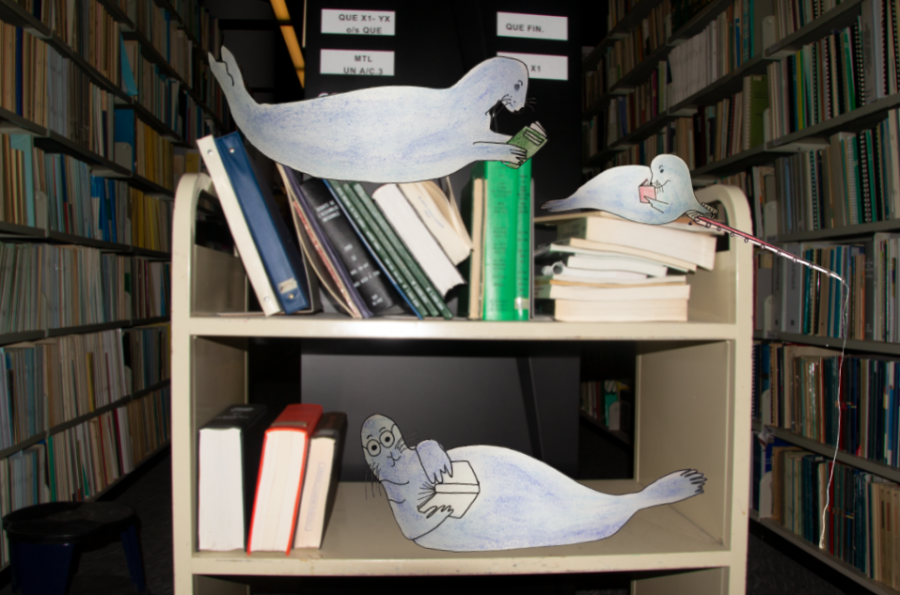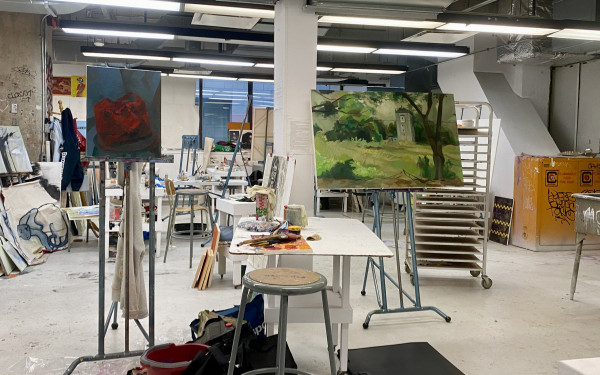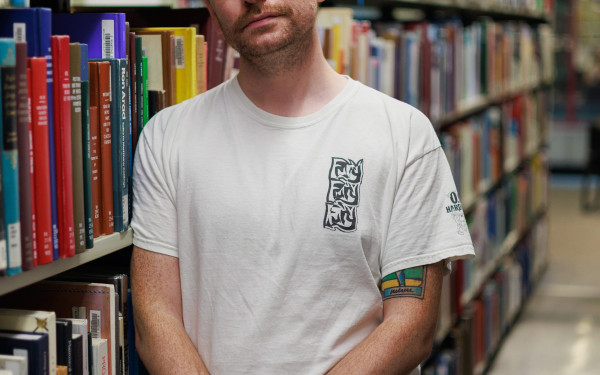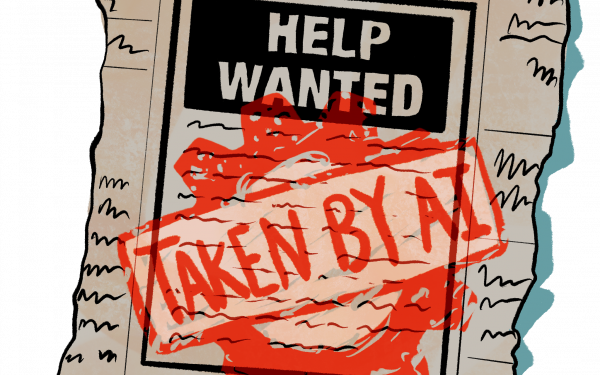The uncharted land of graduate studies away from home
A glimpse in the life of PhD candidate Alexandra Engler
In September 2019, a new chapter began in Alexandra Engler’s life. She started her PhD in biology at Concordia University, in Montreal—over 5,000 km away from her native France. Maintaining a balance between her research, life and mental health proved to be quite the challenge.
According to Concordia’s data, Engler is also one of nearly ten thousand international students studying at the university. She is also one of the 9 539 students in the graduate program, corresponding to 20 per cent of all students at Concordia.
Engler spent most of her life in France, where she studied agronomy and agriculture with a specialization in forestry and environmental protection.
Although she really enjoyed her program, Engler quickly realized it wasn’t the field of work for her. She decided to study in Scotland for half a year, in hopes of learning English. Even if her research on aquatic environments in Scotland taught her a lot, she did not gain the English skills she was hoping for as the difference in accents made communicating very difficult.
Following her time with her fellow Scottish scientists, she seized the chance to work in conservation efforts focused on the Hawaiian monk seal—an endangered species and the only seal native to Hawaii. She admits it was probably the best job she’ll ever have, but it also made her realize the amount of politics involved in this field. She explained that biologists and ecologists continuously fight with the government for financial resources to protect local ecosystems, an extremely time and energy-consuming process.
With that newfound experience, Engler returned to her home country and began her master’s in marine biology. The process in France differs greatly from the one in Canada. In France,strict deadlines add pressure to the already heavy workload of masters programs—it was actually given to her when she was only beginning the program. The deadline in Canada is more flexible as the supervisors are more understanding of the needs of their students. The expiration of her student visa has been the more concerning deadline in her time here.
Engler applied for her PhD while still working towards her master’s degree. As a part of the admission process to her PhD program, she went through various interviews with potential thesis supervisors. Choosing the right supervisor is not a quick and simple decision. Her final decision was intimidating, as it meant leaving her country and going to study in another language.
“You’re going to be with your supervisor for at least four years, so you want to get along with them,” Engler said. She explained that although the interview is a chance for supervisors to judge potential candidates, it is also an opportunity for future candidates to do the same for supervisors. Asking for references of current or past students of the laboratories and supervisors they consider can portray more accurately the day-to-day life at laboratories. Having a bad experience with a supervisor may impact the process of the entire thesis.
“You need people who understand you and live through the same challenges as you. No one fully understands what you’re doing, except for your lab friends.” — Alexandra Engler
It’s also important to consider the laboratory where you’ll be doing research, Engler explained, since it’ll basically be the student’s home for the duration of their PhD. The bigger the laboratory, the more students, and that leads to the supervisor being unable to dedicate as much time to each individual student. She mentioned that even her family and close friends struggle with understanding what her research fully encompasses.
“You need people who understand you and live through the same challenges as you,” said Engler. “No one fully understands what you’re doing, except for your lab friends.”
Engler’s final decision to pursue her graduate studies at Concordia was influenced by multiple factors, including the presence of fellow international students at the laboratory she works at. It made her feel more at home, as she was not the only one struggling with being outside of her home country when the pandemic hit the world in March 2020. The restrictions due to the pandemic made it impossible for many international students to go back home, consequently staying in Montreal for the holidays.
“We were able to celebrate New Year’s Eve all together,” said Engler, recalling the holidays spent with her fellow international students who were not able to visit their family abroad.
Juggling her academic work, laboratory research, admission paperwork and interview processes for her PhD ultimately led Engler to burnout. She nonetheless finished her master’s in July 2019. She then had to figure out how to get all the way to Montreal—booking her flight, finding an apartment and saying goodbye to her friends and family—to leave France for a new chapter of her academic life.
“One month was not enough to recover from such an intellectual burnout,” Engler said. “I finished my master’s feeling like a genius, and now I’m in my PhD feeling very stupid.” This may not come as a shock to those familiar with this universe. The continuous workload is very intense and makes it hard for students to view their own progress, she explained.
“Academia is a rough world, you kind of always feel very dumb.” — Alexandra Engler
She added that doing scientific research is a lot of intellectual work, and you don’t simply stop thinking about it at the end of your day like you do at a job. “Your thesis never really leaves you.”
Engler puts between nine to 10 hours daily into her research. This means reading through hundreds of scientific articles, conducting statistical analysis, having her results peer-reviewed and looking for answers to her research questions. She also works as a teaching assistant one every other semester as a part of the bursary she was awarded for her PhD.
While combining her job as a TA and actively conducting research for her PhD, Engler discovered new parts of herself. “You would’ve told me three years ago that I would be teaching in front of a classroom, I would’ve just laughed,” said Engler. She had to find a way of dealing with her social anxiety as a TA. Now, she considers furthering her education to eventually become a biology professor.
“Academia is a rough world, you kind of always feel very dumb.” said Engler. “It’s normal, you’re in a place that is intellectually challenging, doing something for which there are no good answers.”
To her, the essence of research is to make science move forward and expand knowledge at large. “Plus, you’re surrounded by geniuses,” she said, grinning.







1_600_375_90_s_c1.jpg)